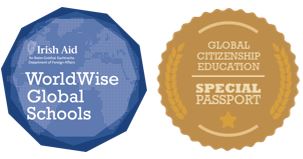Physics is a key part of science and technology; it deals with how and why things behave as they do. Physics is used to solve problems: environmental, social, health, technological and many more.
It’s about practical things but also involves ideas such as the origin of the universe and the tiniest building blocks of all materials.
• Physics lies at the heart of science, engineering, technology, our planet and the universe itself
• Physics involves living and non-living things
• Physics is intriguing and challenging
Physics is the study of matter and energy – how it behaves, works and interacts.
The fundamental ideas of physics are the basis of all the sciences and of our modern technologies.
Physics seeks to provide answers to all sorts of fascinating questions about the world – using them to develop new technologies, such as in:
Information Technology: improving means of storing and communicating information – electronics, computers, telecommunications, internet.
Engineering: mechanical, civil, electrical, industrial, design, opto-electronics & lasers.
Medicine: diagnosing and treating illnesses.
New materials, energy production, monitoring and protecting the environment.
The Course:
The Physics syllabus focuses more on understanding the principles and their application in everyday life and less on pure theory and formulae.
Our students normally achieve Leaving Certificate Higher Level grades way above the national average.
| Physics Topics |
|---|
| Light: Mirrors, lenses, fibre optics, light waves, spectra, and astrophysics. |
| Sound: Production, resonance, vibrating strings & air columns – musical instruments. |
| Mechanics: Motion, forces, energy, power, gravitation, circular motion – satellites. |
| Electricity: Charges, capacitors, circuits, high voltage transmission, electrolysis, solenoids, electromagnets, loudspeaker, transformer. |
| Atomic Physics: Cathode rays – television, semi-conductors- diodes, transistors, integrated circuits, X-rays, medical scanning. |
| Nuclear Physics: Radioactivity, detectors of radiation – cloud chambers, Geiger counter, nuclear energy – fission reactor, fusion, health hazards, medical uses. |
| ‘fundamental forces’: Strong & weak nuclear, electromagnetic, gravitational. |
| ‘families of particles’: Leptons, baryons, mesons, anti-matter, quarks & anti-quarks. |
Activities include experiments, problem solving, presentation of project work to the class, computer aided learning, computer modelling, simulation, working with data-logging equipment and the internet. The students working in pairs carry out 28 mandatory experiments.
Physics – The Future:
Physics graduates are much sought after in a wide range of jobs – telecommunications, electronics, medicine, radiation protection and engineering. They have opportunities to work in government, industry, and university laboratories engaged in virtually any scientific research and development; in teaching; in technical sales and management; in the computer, semiconductor and materials science industry. Physics graduates take up careers that do not involve physics concepts directly – employers are attracted by the range of widely applicable skills which physicists possess e.g. the ability to address problems logically. Physics makes people employable.
Your son should study Physics if
- he is interested in how things work and would like to learn more,
- he has obtained good grades (A, B, C) in Higher Level Mathematics and Science during his Junior Certificate term exams,
- he plans to do Engineering, Computers, Electronics, Science at Third level,
- he would like to work in management using a logical approach to tackle problems.
Please check out some of our Science videos on Youtube









